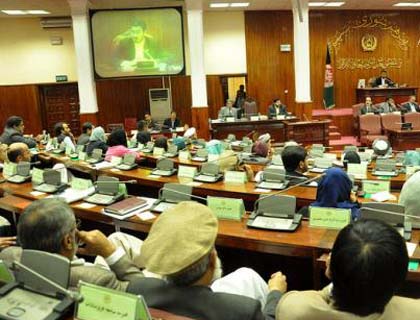KABUL - Some parliamentarians on Thursday said the Taliban had suspended peace negotiations in a bid to mount to pressure on the United States to accept their demands.
On March 15, the insurgent movement announced suspending talks with the US until the Americans come up with clear stance on key issues, including the transfer of prisoners from Guantanamo Bay.
In early January, the Taliban said they had agreed to open a political bureau in Doha for possible peace talks with Washington, a move supported by Kabul and the US governments.
Later on, the group said it had been in contact with Americans on the exchange of prisoners and diplomatic recognition of their Qatar office.
The Hezb-i-Islami Afghanistan (HIA), the second largest militant group, said on Tuesday it was suspending talks with the Afghan government and the US because they lacked a practical policy.
Led by former prime minister and jihadi commander Gulbadin Hekmatyar, the HIA confirmed it had been in contact with some US and European officials on peace parleys.
"Although each side thinks its stance and arguments are strong, negotiators should reach some sort of agreement," remarked Jafar Mehdavi, a public representative from Kabul in the Wolesi Jirga -- lower house of Parliament.
After the suspension of negotiations, the security situation had deteriorated, with the militants trying to step up attacks on US troops in an attempt to have their conditions accepted, the MP believed.
"As the war in Afghanistan drags on, the US should have evolved an effective mechanism for inclusive peace talks, involving all sides. A ceasefire should have been declared," MP Gul Badshah Majidi remarked.
Shakiba Hashimi, a woman parliamentarian from southern Kandahar province, said the Taliban had walked out of talks for the acceptance of their conditions.
Despite the creation of the 70-member High Peace Council, the fighters remain unwilling to talk to a weak Afghan government; instead they want dialogue with the US.

